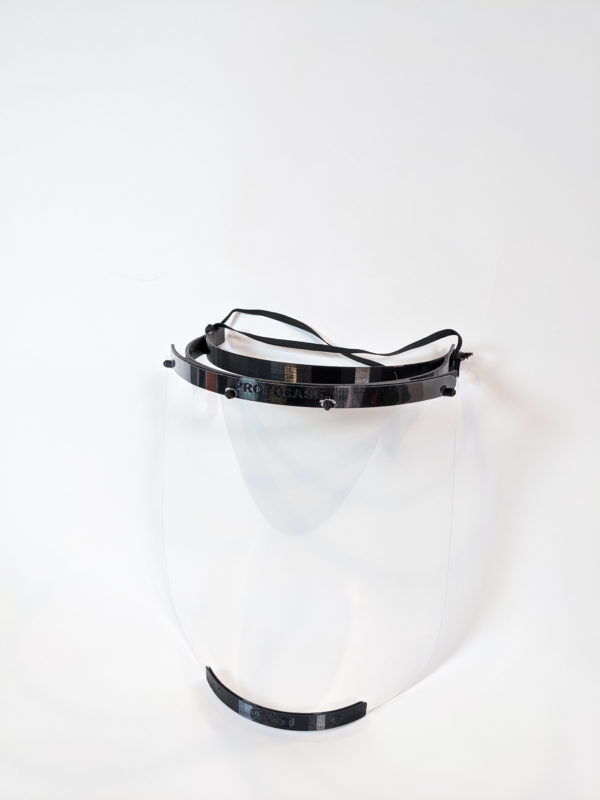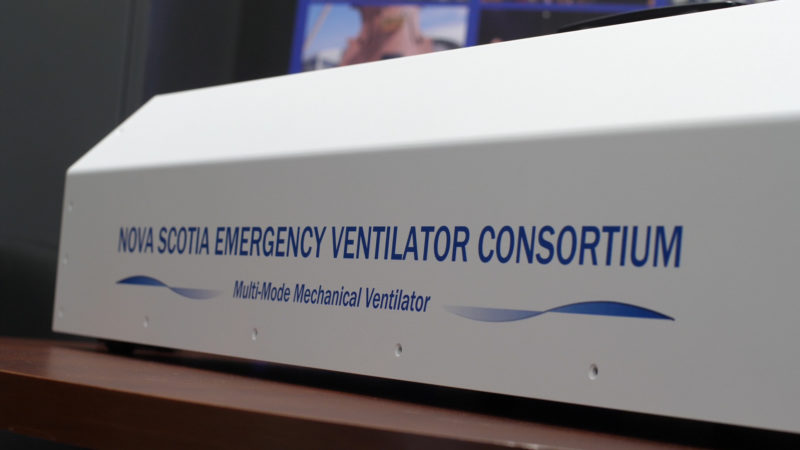The Agents of Change cover story is very near and dear to the heart of Business Voice magazine. For the past eight years, the story put a spotlight on the movers and shakers of our city and province. But this year’s edition is extra special.
The ninth edition covers those who were pivotal in supporting our communities in combating the pandemic. These businesses continue to improve their processes to be as efficient as possible and provide competitive and much-needed products such as protective personal equipment (PPE).
“They have risen to the challenge and shifted operations in support of provincial PPE efforts,” says Fred Crooks, Chief Regulatory Officer at Government of Nova Scotia.
Businesses across the province have provided face shields and gowns to Nova Scotia Health and the IWK, as well as hand sanitizer to meet a sizeable increase in demand across public services, including schools.
“It has been very reassuring and refreshing to see so many Nova Scotia companies step up in support of the production of PPE,” says Crooks.
During the first few months of the pandemic, there was an enormous shortage of hand sanitizers and a lot of panic in the general population. Compass Distillers shifted from producing distilled spirits to making hand sanitizer and ethanol-based surface sanitizer.
“As a distillery we felt it was our duty to shift production from spirits over to hand sanitizer during those crucial months,” says Renae Perry, Sales & Marketing Manager at Compass Distillers.
Being provided with an opportunity to contribute during these unprecedented times, many businesses like Compass Distillers were kept busy in the early days when the pandemic was having a more significant impact on the economy.
“Any time a business has an opportunity to quickly pivot and ramp-up a new product line and area of business, they gain valuable experience,” says Crooks.
Compass Distillers’ hand-sanitizer production has now slowed down since big manufacturers have ramped up production dramatically. “But if there is a resurgence of demand, we will do what we must,” says Perry.
This slowdown is also due to the unsustainable nature of PPE production for a small business. “Our first batch of hand sanitizer was produced using very high proof vodka,” says Perry. “So the most expensive way possible to make hand sanitizer, which makes it very much not sustainable.”
Even after changing their production methods to make a less tasty ethanol, the costs of making “craft distilled” hand sanitizer is considerably higher compared to pharmaceutical or fuel ethanol production facilities. Compass Distillers’ production space is not optimized to creating high volumes of high-proof ethanol.
“We kept our prices as low as possible, but we had to cover costs,” says Perry.
As instrumental as it was, this shift impacted its regular production schedule. Yet, it kept them busy with meeting a community need – which was quite fulfilling for the team at Compass Distillers. Even with this impressive yet difficult shift, the distilling company remained open and operational.
The government facilitated the Health Canada permit for making hand sanitizer, which supported Compass Distillers in their PPE production.
But the support was limited and didn’t garner much involvement from the government beyond that.
“These businesses are well known to our economic development partners and they will certainly leverage the supports available as it makes sense for their business,” says Crooks.
With the recent spike of cases in the central region, the government announced a grant program offered to HRM restaurants, bars and gyms to support them with their temporary closure and PPE production.
“It is still somewhat unpredictable,” says Crooks. “A lot will depend on how long it takes to return to normal and what ‘normal’ looks like.”
Compass Distillers is appreciative of the support of the community that enabled it to donate over 1,500 bottles of hand sanitizers to local non-profit organizations, as well as health care workers, elderly community members and those at high risk.

Other businesses have developed emergency response solutions and innovations that are in various stages of development.
This includes several Nova Scotia companies that are developing testing and other technology solutions. With a shortage of ventilators when hospitals were hit by a high number of infected patients, there was a life-dependent need for respiratory support.
Protocase stepped up to the plate to support the fight against the spread. The custom-part, sheet-metal-enclosure, CNC-machining and 3D-printing manufacturing company helps engineers, researchers and scientists all over the world innovate and develop technology.
“The manufacturing of PPE has helped our company, in the sense that it was a wonderful exercise in collaborating between our sales, engineering and R&D teams,” says Allison MacDonald, Marketing Manager at Protocase.
Through teamwork and solid project management, the teams at Protocase were able to quickly determine the requirements for creating face shields and create a manufacturable design that could be replicated quickly.
While it didn’t switch from manufacturing those products to PPE, Protocase did engage their internal teams with two specific COVID-19 projects.
Its 3D-printing division created face shields for local businesses in the Cape Breton Regional Municipality, who were having difficulty sourcing face shields elsewhere. These businesses included restaurants and the fisheries association amongst others.
“We also created the Nova Scotia Ventilator Consortium which, through guidance from doctors and respiratory specialists, created a fully functional portable mechanical ventilator,” says MacDonald.
This project’s goal was to create a ventilator that could be quickly and easily manufactured. The consortium also included Enginuity Inc., Advanced Glazings Ltd., Nova Scotia Power MakerSpace and Cape Breton University.
“Because of our business model, and our client base of engineering and innovation, the pandemic didn’t slow down our operations,” says MacDonald.
PPE production at Protocase will continue as needed based on customer demand. “Our 3D-Printing division is one of our newest entities, as we launched it in mid-2019,” says MacDonald.
“Because everything we create for our customers is completely customized based on their requirements and demand, we are able to manufacture what’s needed, when it’s needed.”
Compass Distillers and Protocase are amongst several pioneering businesses and individuals who continue to offer assistance in many ways. With PPE demands remaining high, these businesses also continue to gain tremendous knowledge on what it takes to supply the health sector.
“We are still very much in a pandemic and cases are spiking across the world,” says Crooks. “PPE will be required for the foreseeable future and we will continue to ensure adequate supply of PPE for Nova Scotia.”
“Safety and efficacy cannot be spared, and products must meet stringent regulations,” says Crooks. “In a world of constrained supply, it is comforting to see local suppliers who can deliver on time and who are not as affected by external market pressures in getting their products to us.” ■


< Back to Articles | Topics: Cover story

